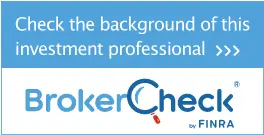No Beneficiary Designation. Who Gets The Money?
According to a recent Wall Street Journal article, retirement plans and IRAs account for about 60 percent of the assets of U.S. households investing at least $100,000.¹ Both state and federal laws govern the disposition of these assets, and the results can be complicated, especially when the owner of the account has been divorced and […]
5 Ways to Increase Retirement Plan Participation
Employees fail to enroll in their retirement plan for a variety of reasons. They may be intimidated if it’s their first time around or they might not fully understand and appreciate the benefits (or the downside of not participating). Some could be concerned about “locking up” their money — and others might worry so much […]
6 Ways to Reduce Fiduciary Liability

In 2020, nearly 100 lawsuits alleging breach of fiduciary duty were filed. And with the number of 401(k) lawsuits on the rise targeting plans both large and small, sponsors are well-advised to consider taking additional measures to mitigate fiduciary risk where practicable. Here are a few to consider. 1. Create and follow an IPS. While […]
No Surprise Billing Interim Final Regulations – Part 1
On July 1, 2021, the U.S. Departments of Health and Human Services, Labor, and Treasury, along with the Office of Personnel Management (collectively, the Departments), issued an interim final rule (IFR) to explain provisions of the No Surprises Act (the Act) that passed as part of sweeping COVID-19 relief legislation signed in December 2020. The […]
401(k) Plan Tax Credit Summary

Eligible employers may be able to claim a tax credit of up to $5,000, for three years, for the ordinary and necessary costs of starting a SEP, SIMPLE IRA or qualified plan (like a 401(k) plan.) A tax credit reduces the amount of taxes you may owe on a dollar-for-dollar basis. If you qualify, you […]
Participant Corner: Tax Saver’s Credit Reminder

You may be eligible for a valuable incentive, which could reduce your federal income tax liability, for contributing to your company’s 401(k) or 403(b) plan. If you qualify, you may receive a Tax Saver’s Credit of up to $1,000 ($2,000 for married couples filing jointly) if you made eligible contributions to an employer sponsored retirement […]
Retirement Plan Committee Activities

A retirement plan committee consists of co-fiduciaries who are responsible for all plan management activities that have been delegated to them by their plan’s named fiduciary. ERISA states that the committee must act exclusively in the best interests of plan participants, beneficiaries and alternate payees as they manage their plan’s administrative and management functions. Many […]
QDIA…. Why is it important?

The qualified default investment alternative (“QDIA”) is arguably the most important investment in a plan’s investment menu. By far the most often selected QDIA investment is a target date fund (“TDF”). TDFs are typically the only investment selection that offers unitized professionally managed portfolios that reflect the participants’ time horizon today and as they go […]
Excessive Fee Litigation: The Best Defense is Compliance

Excessive fee litigation is increasing at a steady pace and all signs are it will continue to increase. The positive side of this situation is that we now have more caselaw to consider as we work toward compliance in creating a “best defense”. Early caselaw did not reflect the consistency of court decisions. Some court […]
Target Date Funds—Does One Size Really Fit All?
If you have ever opened a brokerage account with an advisor, you know the first step is gathering information to determine the risk profile and appropriate investment allocation for the individual. In order to determine the appropriate allocation for a client, financial advisors will inquire about income level, savings rate, net worth, time horizon, spending […]
